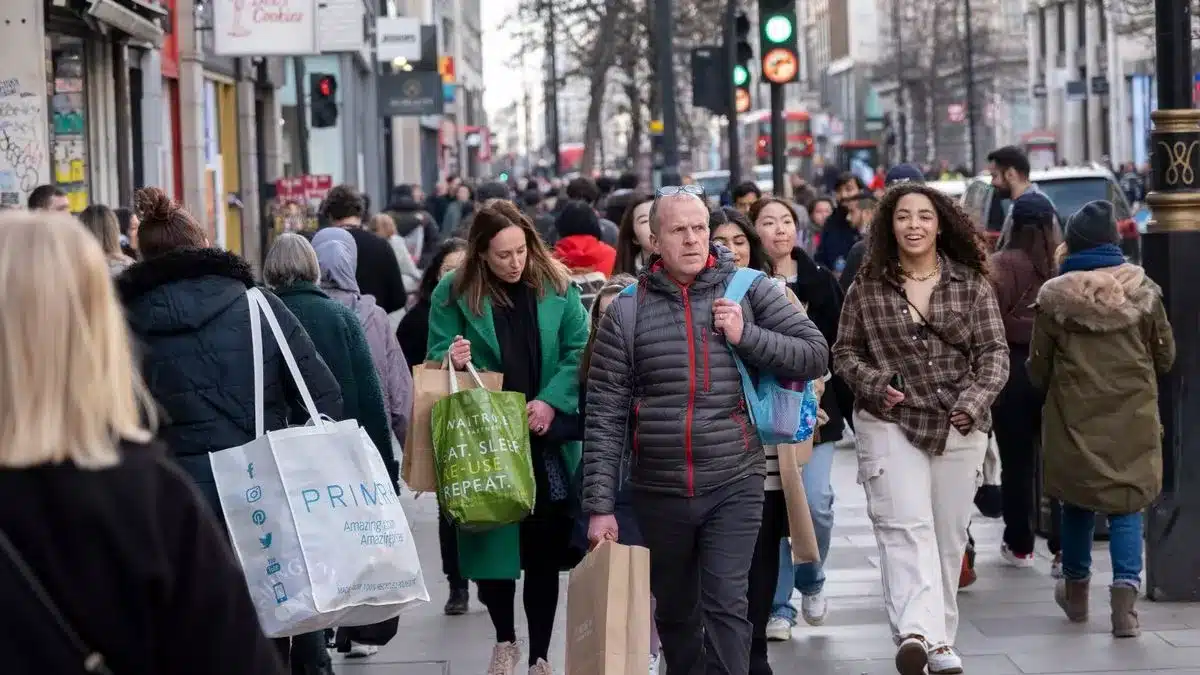The UK economy has entered a recession due to households reducing their spending in response to high interest rates and increasing living costs.
The Office for National Statistics (ONS) reported that gross domestic product (GDP) declined by a larger than expected 0.3% in the three months leading up to December.
This decline was seen across all major sectors of the economy, with retail sales collapsing in the lead-up to Christmas.
This follows a 0.1% decrease in the third quarter, confirming two consecutive quarters of falling national output, which is the technical definition of a recession.
The confirmation of a recession is seen as a setback for the government, especially with an upcoming election and will be embarrassing for Rishi Sunak, as the prime minister had prioritized economic growth at the beginning of last year.
Rachel Reeves, the shadow chancellor, said: “Rishi Sunak’s promise to grow the economy is now in tatters. The prime minister can no longer credibly claim that his plan is working or that he has turned the corner on more than 14 years of economic decline under the Conservatives that has left Britain worse off.
“This is Rishi Sunak’s recession, and the news will be deeply worrying for families and business across Britain.”
According to the ONS, the growth rate for the entire year of 2023 is estimated to be 0.1%, which is the lowest since 2009 when the financial crisis occurred. This estimation does not include the economic collapse in 2020 caused by the Covid pandemic.
The director of economic statistics at the ONS, Liz McKeown, said: “Our initial estimate shows the UK economy contracted in the fourth quarter of 2023. While it has now shrunk for two consecutive quarters, across 2023 as a whole, the economy has been broadly flat.
“All the main sectors fell on the quarter, with manufacturing, construction, and wholesale being the biggest drags on growth, partially offset by increases in hotels and rentals of vehicles and machinery.”
Economists had predicted a mild recession towards the end of last year due to increased borrowing costs and higher prices for essential goods, which put pressure on households and led to cutbacks in other areas. Additionally, strikes across various sectors of the economy and heavy rainfall further dampened economic activity.
However, more recent data from the economy has shown an improvement in consumer confidence since the beginning of this year. This can be attributed to the expectation of interest rate cuts by the Bank of England, which has helped to alleviate inflationary pressures.
Andrew Bailey, the governor of the Bank, has downplayed the significance of the quarterly GDP figures, suggesting that there are indications of an economic upturn that will become more evident in the coming months.
The chancellor, Jeremy Hunt, said: “High inflation is the single biggest barrier to growth, which is why halving it has been our top priority. While interest rates are high – so the Bank of England can bring inflation down – low growth is not a surprise.
“But there are signs the British economy is turning a corner. Forecasters agree that growth will strengthen over the next few years, wages are rising faster than prices, mortgage rates are down, and unemployment remains low. Although times are still tough for many families, we must stick to the plan—cutting taxes on work and business to build a stronger economy.”
The most recent report from the ONS shows that the economy was weak towards the end of last year. There was a decrease in GDP due to a difficult Christmas shopping season for retailers, strikes by junior doctors, and heavy rainfall.
The ONS also noted that household spending was under pressure because of the cost of living crisis. The UK’s services sector, which is the largest sector in the country, experienced a decline for three quarters in a row, with a 0.2% drop in the last three months of 2023.
Suren Thiru, the economics director at the Institute of Chartered Accountants in England and Wales, said: “Though the shallowness of this recession provides comfort, these figures also confirm that our economy remained locked in a cycle of persistent stagnation throughout 2023 as a myriad of headwinds, including high inflation, weighed heavily on activity.”





